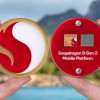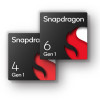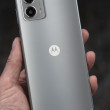Sprint Announces Successor to iDEN-Based PTT
Mar 16, 2011, 11:13 AM by Eric M. Zeman
updated Mar 16, 2011, 11:42 AM
Sprint today announced Sprint Direct Connect, a new CDMA-based push-to-talk technology that will replace the aging iDEN-based PTT system that Sprint has used for years, as well as the Qualcomm-derived QChat system. (Sprint recently stopped selling QChat phones entirely and also decreased the number of iDEN phones it sells to just 8). Sprint Direct Connect, which is set to launch by the end of the year, will carry forward most of the features available via today's PTT services, but will add a number of new ones, including group PTT with up to 200 participants, Land Mobile Radio interoperability, and presence notifications. Sprint Direct Connect will first launch on rugged handhelds from Motorola and Kyocera, and Sprint says they will support "high-speed data, high-resolution cameras, and Bluetooth." Two of the first handsets will be an Android smartphone with a touch screen and QWERTY keyboard, as well as a rugged flip phone. Sprint indicated that this new technology, which wasn't described, is being made possible by its Network Vision improvements, and will make use of 800MHz, 1900MHz, and 2.5GHz spectrum. Sprint says the footprint of this new PTT system will be three times bigger than that of its current iDEN system, covering 2.7 million square miles and 309 million POPs. Sprint said the new system will be interoperable with all its existing PTT devices. Sprint will launch a program later this year to help customers of its iDEN PTT phones transition to the new CDMA-based Sprint Direct Connect technology.
Comments
Hmm... they need to make sure it has 2 things going for it.
2) Low lag between communications.
That's what the old technology offers, so users will expect the same.
mycool said:
1) Low latency on initialization.
2) Low lag between communications.
That's what the old technology offers, so users will expect the same.
Either way they dont have a choice. iDEN will be dead just ...
(continues)
50 years later....
(continues)


 iPhone 14 Plus Offers a Big Screen For Less
iPhone 14 Plus Offers a Big Screen For Less
 Snapdragon 8 Gen 2 Redefines AI in Flagship Phones
Snapdragon 8 Gen 2 Redefines AI in Flagship Phones
 Sonim XP5plus Emulates Traditional Two-Way Radios
Sonim XP5plus Emulates Traditional Two-Way Radios
 Qualcomm Intros Snapdragon Chips for 2023's Mid-Range & Affordable 5G Phones
Qualcomm Intros Snapdragon Chips for 2023's Mid-Range & Affordable 5G Phones
 Cricket Doubles Down on White-Label Phones
Cricket Doubles Down on White-Label Phones






